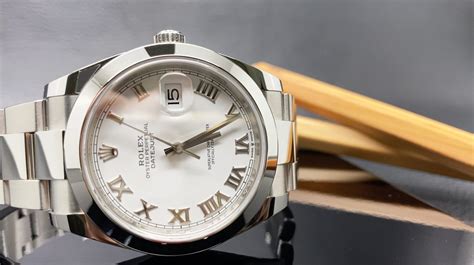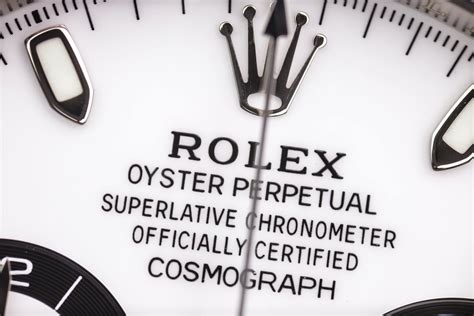rolex watch gains time | Rolex watch adjustment rolex watch gains time Anything that causes the amplitude of the balance to be reduced will cause the . Since its creation in 1953, the Submariner has constantly evolved, enhancing its waterproofness, robustness, and functionality. The case was enlarged from 38 to 40 mm .
0 · Rolex watch adjustment
1 · Rolex watch accuracy improvement
2 · Rolex watch accuracy guide
3 · Rolex speed adjustment
4 · Rolex running fast adjustment
5 · Rolex running fast
6 · Rolex crown accuracy
7 · Rolex automatic winding
11th April » The Battle of Nanri Island takes place. 15th April » The maiden flight of the B-52 Stratofortress. 28th April » Dwight D. Eisenhower resigns as Supreme Allied Commander of NATO. 28th April » Occupied Japan: The United States occupation of Japan ends as the Treaty of San Francisco, ratified September 8, 1951, comes into force.
Anything that causes the amplitude of the balance to be reduced will cause the .
We recommend you have your Rolex serviced by a watchmaker about every 7-10 years. However, if you notice your watch is losing or gaining significant time, don’t wait for your next service interval. Take it to an authorized Rolex service center and have it . Anything that causes the amplitude of the balance to be reduced will cause the watch to run fast. The most frequent culprit here is magnetism, but mechanical faults can also cause the problem. Magnetized watches often run many minutes fast in a day. Over the week, I noticed every day it was gaining a couple of minutes. 7 days later it had gained a full 30 minutes. I'm at a loss to what would cause this. When it's being worn or even just laying around it usually loses between 4 and 6 seconds per day. Modern Rolex watches have either two or four regulator screws on the balance wheel. In order to adjust the time, the screws are turned in (makes the watch run faster) or turned out (makes it run slower).
It’s accepted that a normal range of time lost for a watch is close to 3 minutes per month. If your watch is gaining time, the norm is around 6 additional minutes per month. If your Rolex falls within these specs, your watch is keeping time beautifully.
Rolex watch adjustment
Rolex watch accuracy improvement
How can you tell if your Rolex is accurate? What should you do if your Rolex is losing or gaining time? Check out some tips to keep your Rolex’s accuracy. SCOC watches are recomended -4 +6 seconds per day. However, JJ is always correct, mostly Rolex watches gain or loose very little, and anything really over SCOC recomended alowance and your watch should be set by . In general dial up and dial down are the most efficient positions for a mechanical watch and therefore are the most likely to gain time. Crown up and crown down tend to be less efficient so they tend to lose the most time in those positions. This is far from absolute though. Rolex watches are known for their exceptional accuracy, with a specified precision of +/- 2 seconds per day. It’s not uncommon for mechanical watches to have an accuracy deviation of 5 to 10 seconds per day. Where Rolex stands out is in its ability to consistently achieve much tighter accuracy.
Some Rolex owners measure the accuracy of their own watches and find that their watch might lose or gain 5 second per day. That’s a performance standard that is well within the COSC Chronometer certification standard, yet said Rolex owners are not pleased. We recommend you have your Rolex serviced by a watchmaker about every 7-10 years. However, if you notice your watch is losing or gaining significant time, don’t wait for your next service interval. Take it to an authorized Rolex service center and have it . Anything that causes the amplitude of the balance to be reduced will cause the watch to run fast. The most frequent culprit here is magnetism, but mechanical faults can also cause the problem. Magnetized watches often run many minutes fast in a day.

Over the week, I noticed every day it was gaining a couple of minutes. 7 days later it had gained a full 30 minutes. I'm at a loss to what would cause this. When it's being worn or even just laying around it usually loses between 4 and 6 seconds per day. Modern Rolex watches have either two or four regulator screws on the balance wheel. In order to adjust the time, the screws are turned in (makes the watch run faster) or turned out (makes it run slower).
Rolex watch accuracy guide
It’s accepted that a normal range of time lost for a watch is close to 3 minutes per month. If your watch is gaining time, the norm is around 6 additional minutes per month. If your Rolex falls within these specs, your watch is keeping time beautifully. How can you tell if your Rolex is accurate? What should you do if your Rolex is losing or gaining time? Check out some tips to keep your Rolex’s accuracy.
SCOC watches are recomended -4 +6 seconds per day. However, JJ is always correct, mostly Rolex watches gain or loose very little, and anything really over SCOC recomended alowance and your watch should be set by . In general dial up and dial down are the most efficient positions for a mechanical watch and therefore are the most likely to gain time. Crown up and crown down tend to be less efficient so they tend to lose the most time in those positions. This is far from absolute though. Rolex watches are known for their exceptional accuracy, with a specified precision of +/- 2 seconds per day. It’s not uncommon for mechanical watches to have an accuracy deviation of 5 to 10 seconds per day. Where Rolex stands out is in its ability to consistently achieve much tighter accuracy.
christian dior birth date

Rolex speed adjustment
$8,450.00
rolex watch gains time|Rolex watch adjustment

























